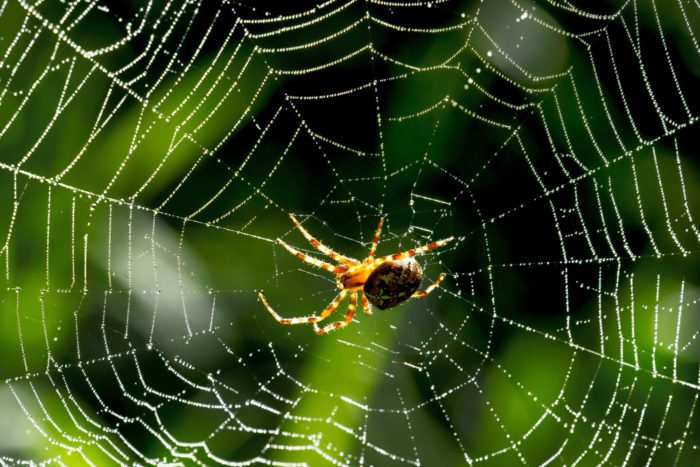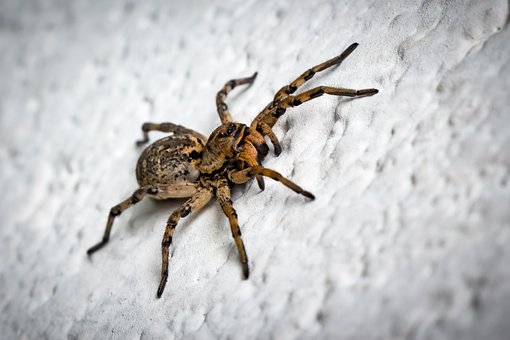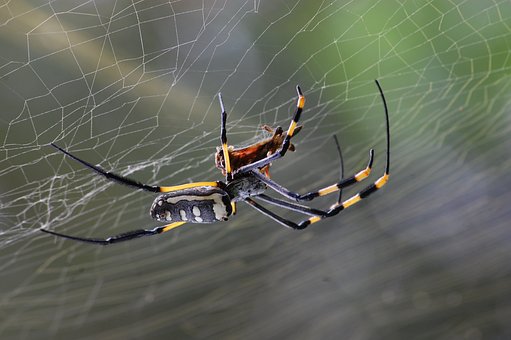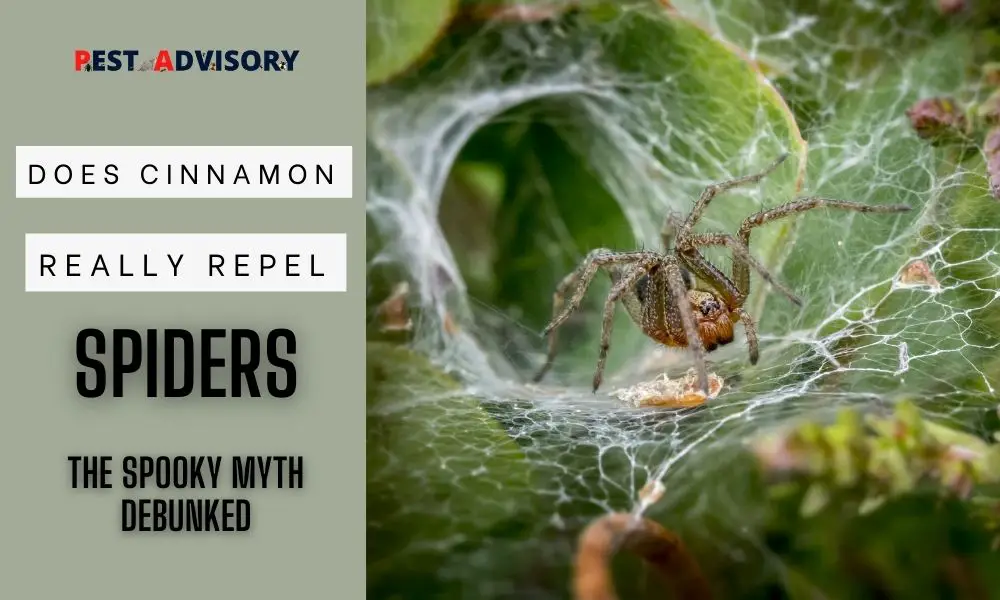Welcome to the fascinating world of spider repellents! If you’ve ever come across a creepy-crawly eight-legged creature in your home, you might have wondered if there’s a natural solution to keep them at bay.
One popular folk remedy that has gained attention is cinnamon. Known for its warm and inviting aroma, cinnamon is a spice that’s been used for centuries in cooking, baking, and even for medicinal purposes.
But can cinnamon also repel spiders?
Important Note: If you're tired of pests and want a reliable solution, then you should definitely consider seeking help from a professional pest control company. DIY solutions can be effective, but if you're dealing with a significant pest infestation, you don't want to rely solely on DIY methods. Pest control companies typically don't charge huge fees. You can fill out this form to receive free quotes from the top local pest control companies, and compare the quotes and see for yourself. Then, finally, your pest problems will be eliminated for good.
In this article, we’ll take a closer look at this age-old belief and explore the scientific evidence behind whether cinnamon is an effective spider repellent-or just a myth.
So, grab your cup of hot cider, and let’s unravel the mystery of whether cinnamon can really send spiders packing!
Does Cinnamon Repel Spiders
The short answer is that there is limited scientific evidence to support the claim that cinnamon repels spiders.
While cinnamon is known for its strong aroma, which some people find pleasant and others find overpowering, there is no conclusive scientific proof that it has a significant impact on spiders’ behavior or ability to repel them.
A study published in the Journal of Economic Entomology in 2014 tested the repellency of various essential oils, including cinnamon, against the brown recluse spider.
However, the study found that cinnamon oil was not effective in repelling spiders, and they showed no avoidance behavior towards it.
Another study published in the Journal Scientific Reports in 2018 evaluated the effectiveness of cinnamon oil in repelling the common house spider.
The study found that cinnamon oil had a minimal effect on repelling spiders, and its effectiveness was significantly lower than other essential oils such as peppermint and lemon oil.
Why Does Cinnamon Repel Spiders
Scent
Cinnamon has a strong and distinct aroma that some belief may repel spiders.
It is thought that the pungent scent of cinnamon could mask the pheromones or chemical signals that spiders use to communicate with each other, potentially confusing or repelling them.
Irritation
Cinnamon contains certain compounds, such as cinnamaldehyde, that may have irritant properties.
It is possible that these compounds could cause discomfort or irritation to spiders when they come into contact with cinnamon, leading them to avoid treated areas.
Antimicrobial properties
Cinnamon has been shown to possess antimicrobial properties and may inhibit the growth of certain microorganisms.
Some suggest that spiders, which are known to be sensitive to environmental cues, may avoid areas treated with cinnamon due to its potential antimicrobial effects.

How to Use Cinnamon to Get Rid of Spider
While there is limited scientific evidence to support the effectiveness of cinnamon in repelling spiders, some people still choose to use cinnamon as a potential natural spider deterrent.
Cinnamon Spray
To make a cinnamon spray, you can mix the cinnamon essential oil with water in a spray bottle.
The general ratio is about 10 to 15 drops of cinnamon essential oil per 1 cup of water.
Shake the bottle well to ensure that the oil is dispersed in the water.
Then, spray the mixture around areas where spiders are commonly seen, such as corners, window sills, and doorways.
It’s important to note that essential oils are concentrated and can cause skin irritation or allergic reactions, so use caution and follow safety guidelines when handling them.
Cinnamon Powder
Cinnamon powder can be used similarly to the spray method.
Simply sprinkle the cinnamon powder around areas where spiders are known to frequent, or create a barrier with cinnamon powder along entry points, such as windowsills or doorways.
You can also mix cinnamon powder with water to create a paste and apply it to cracks or crevices where spiders might enter.
Cinnamon Sticks
Cinnamon sticks can be placed strategically in areas where spiders are known to be active, such as corners, closets, or under furniture.
Some people believe that the scent of cinnamon released from the sticks may help repel spiders. You can also crush the cinnamon sticks to release more of the aroma.
Cinnamon Oil
Cinnamon oil can be used in a diffuser or added to a cotton ball and placed in areas where spiders are commonly seen.
The diffuser can help disperse the cinnamon scent into the air, potentially making the area less appealing to spiders.

Frequently Asked Questions
Does Cinnamon Kill Spiders?
No, cinnamon does not kill spiders. While some people believe that cinnamon can repel spiders due to its strong smell, there is no scientific evidence to support the claim that cinnamon has lethal effects on spiders.
It is best to use proper spider control methods recommended by pest control experts to manage spider infestations effectively.
Do Spiders Hate Cinnamon?
No, spiders do not hate cinnamon. There is no scientific evidence to support the claim that spiders are repelled or harmed by cinnamon. Spiders are not known to have a sense of taste or aversion to specific scents or spices.
Does Cinnamon Kill Spider Mites?
Yes, cinnamon can help in killing spider mites due to its antimicrobial properties. Cinnamon powder can be sprinkled on the leaves of infested plants or mixed with water and sprayed on the affected areas.
However, other effective methods such as using insecticidal soap or neem oil may be more reliable for controlling spider mite infestations.
What Repels Spiders Naturally?
Several natural remedies can repel spiders, including peppermint oil, vinegar, citrus peels, and chestnuts.
Spiders are sensitive to strong scents and may avoid areas treated with these substances.
However, effectiveness may vary, and it’s best to use these remedies in conjunction with other spider prevention measures, such as keeping your home clean and decluttered.

Conclusion
While cinnamon is often touted as a natural spider repellent, the scientific evidence supporting its effectiveness remains limited.
While some people may choose to use cinnamon in various forms, such as spray, powder, sticks, or oil, as a potential spider deterrent, it’s important to keep in mind that results may vary, and it’s not a guaranteed solution.
As with any natural remedy, caution and proper usage are recommended, and addressing the underlying causes of spider infestations is crucial for effective spider control.

